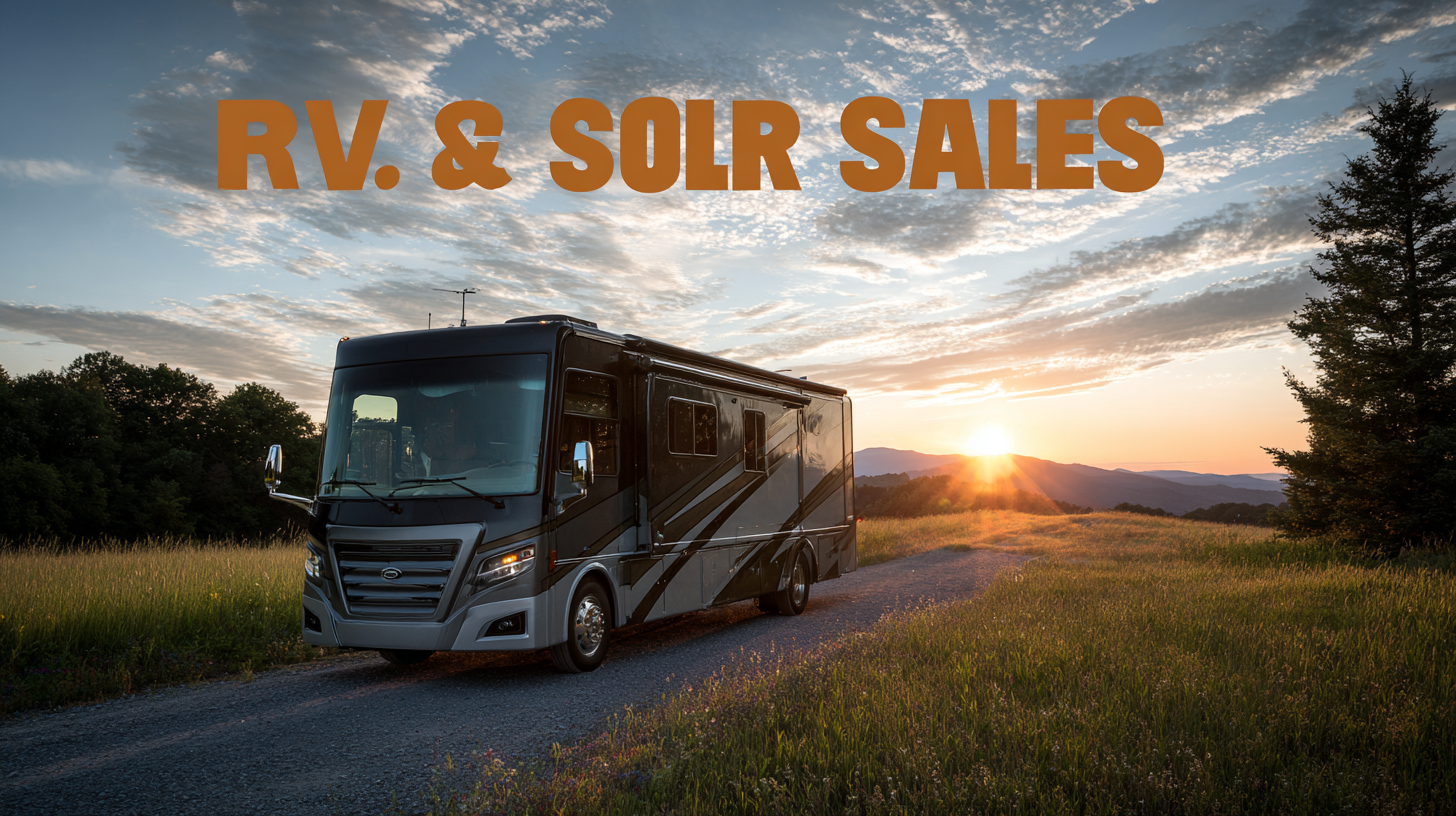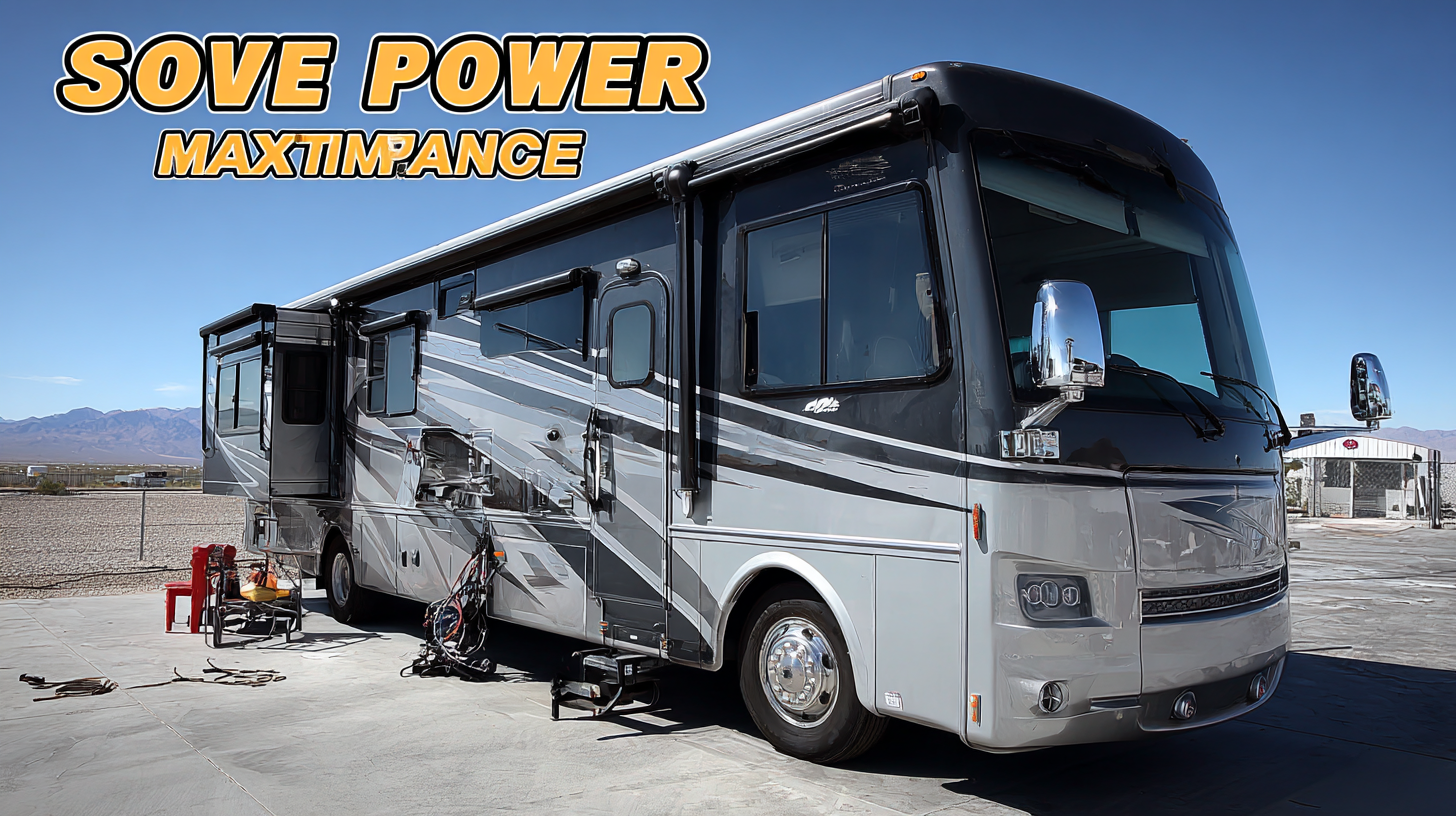In recent years, the RV solar power industry has experienced significant growth,
with the market projected to reach $4.5 billion by 2027, according to a report by Grand View Research.
As more RV enthusiasts turn to solar energy for its sustainability and cost-effectiveness, the importance of
effective after-sales service becomes paramount in minimizing maintenance costs.
Proper maintenance of RV solar power systems can extend their lifespan and enhance performance, ultimately
maximizing returns on investment. By implementing targeted strategies, RV owners can significantly reduce ongoing
maintenance expenses while enjoying the freedom of off-grid adventures.
In this blog, we will explore seven key after-sales service tips that will empower RV owners to
safeguard their solar investments and ensure optimal functionality throughout their journeys.

When it comes to RV solar power systems, understanding their various types and maintenance requirements is crucial for maximizing investment and minimizing costs. According to the Solar Energy Industries Association, the average lifespan of a solar panel is approximately 25-30 years, but proper maintenance can significantly enhance their efficiency and longevity. There are primarily three types of RV solar power systems: standalone, grid-tied, and hybrid. Each system has distinct maintenance needs; for example, standalone systems often require regular battery maintenance to ensure optimal power storage, while grid-tied systems benefit from periodic inspections of the inverter.
Additionally, research indicates that neglecting routine maintenance can lead to higher operational costs over time. A report from the National Renewable Energy Laboratory highlights that proper cleaning and maintenance can improve solar panel efficiency by up to 25%, particularly in dusty or shaded environments. Furthermore, ensuring that all electrical connections are secure and corrosion-free can prevent costly repairs. By understanding these different systems and committing to regular maintenance, RV owners can minimize the total cost of ownership while ensuring their solar power systems operate at peak performance.

When selecting RV solar panels, understanding the key features is essential for making the right choice. First, it's crucial to consider the type of solar cell technology. Monocrystalline panels are efficient and space-saving but may come at a higher price. On the other hand, polycrystalline panels are typically less expensive and slightly less efficient, making them a viable option for those on a budget. Thin-film panels, while lightweight and flexible, usually require more space and may take longer to provide a full charge.
To maximize your investment, implementing effective after-sales service can significantly lower maintenance costs. One tip is to regularly clean your solar panels; dirt and debris can block sunlight, reducing efficiency. Another important tip is to monitor the performance of your panels. Utilizing smart monitoring systems can help you identify any issues early on, allowing for timely repairs. Lastly, invest in high-quality charge controllers to protect your battery from overcharging, which can extend the lifespan of your entire solar system. By focusing on these features and tips, you can ensure that your RV solar power system meets your needs efficiently.
When considering RV solar power systems, inverters play a crucial role in maximizing efficiency and reducing overall costs. An inverter’s primary function is to convert the direct current (DC) produced by solar panels into alternating current (AC), which is utilized by most household appliances. Choosing the right type and size of inverter can significantly impact the performance and longevity of your solar energy system. For instance, a higher-quality inverter minimizes energy loss during conversion, ensuring that you get the maximum possible output from your solar setup.
Moreover, regular maintenance of your inverter can prevent costly repairs and replacements in the long run. Keeping the inverter clean and monitoring its performance can help identify issues before they escalate. It’s also wise to stay informed about firmware updates from the manufacturer, as these can enhance performance and improve efficiency. By prioritizing the inverter’s health within your RV solar power system, you not only enhance energy efficiency but also contribute to reducing maintenance costs, ultimately protecting your investment.

When it comes to RV solar power systems, choosing the right battery is crucial for balancing longevity and initial investment. Opting for lithium batteries can significantly enhance your system's lifespan, often lasting over a decade with minimal maintenance. Although they come with a higher upfront cost, their efficiency and longevity can ultimately save you money in replacement expenses.
To maximize your investment, consider these tips. First, always assess your power needs carefully to choose the right capacity for your battery. Over-sizing can lead to unnecessary costs, while under-sizing can leave you without sufficient power. Second, regular maintenance checks are vital; ensure your connections are clean and secure to prevent energy loss. Lastly, invest in a quality battery management system to optimize charging cycles and extend battery life, making your initial investment more worthwhile.
In conclusion, a careful evaluation of battery options combined with smart maintenance practices will put you in the best position to enjoy efficient and cost-effective RV solar power for years to come.
Maintaining the longevity of your RV solar setup is essential not only for maximizing efficiency but also for minimizing long-term costs. According to a report from the National Renewable Energy Laboratory (NREL), proper maintenance can extend the lifespan of solar panels by up to 25 years, significantly enhancing your investment return. Routine checks, such as inspecting for dirt accumulation and ensuring connections are secure, can prevent minor issues from escalating into costly repairs.
In addition to regular inspections, replacing or cleaning components like batteries and charge controllers can greatly improve system performance. A study by the Solar Energy Industries Association (SEIA) shows that neglecting these components leads to a 20-30% decrease in efficiency over time. Moreover, investing in quality mounting systems can mitigate flexing and movement, which can cause wear and tear on solar panels. By implementing these common maintenance practices, RV owners can ensure the reliability and efficiency of their solar power systems, ultimately reducing maintenance costs and enhancing the overall value of their investment.
